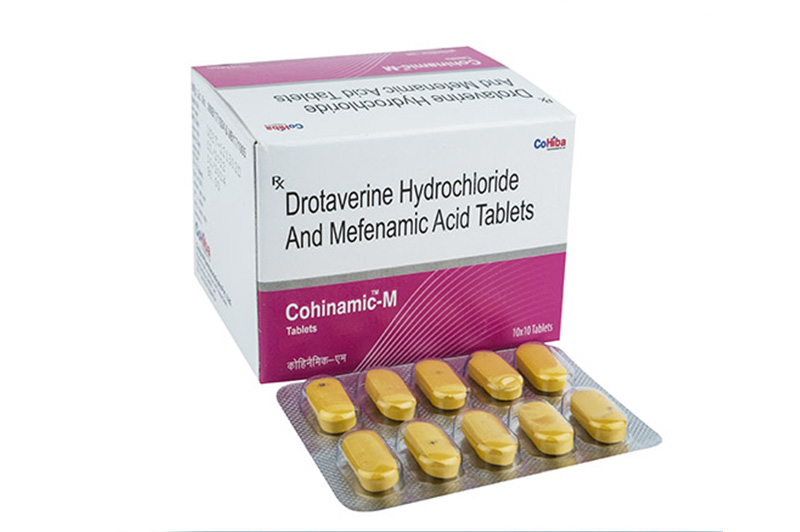
Drotaverine hydrochloride is myotropic spasmolytic, derivative of isoquinoline. Its chemical structure and pharmacological properties are close to those of papaverine, but drotaverine hydrochloride possesses a stronger and longer-lasting effect. It decreases calcium ions supply to smooth muscle cells (inhibition of phosphoesterase and intracellular accumulation of adenosine monophosphate). It decreases tone of muscles of the internal organs, intestinal motility and dilates the blood vessels. It does not have effect on the vegetative nervous system and does not penetrate to the central nervous system.
Its direct effect on smooth muscles allows it to be used as a spasmolytic when m-cholinoblockers are contraindicated (angle-closure glaucoma, prostatic hyperplasia).
Features
- Myotropic
- Vasodilator
- Spasmolytic
- No CNS Penetration
- No anticholinergic properties
- BIODROTAVE
Mechanism of Action
- Phosphodiesterase-4 inhibitor, enzyme responsible for the degradation of cyclic adenosine monophosphate (CAMP),
- inhibition of PlE4 leads to elevated levels of CAMP, leading to smooth muscle relaxation.
- Decreases calcium ions supply to smooth muscle cells inhibition of phosphoesterase.
- Displays more potent, stronger and longer-lasting effect, antispasmodic activities than papaverine.
Indications
- Smooth Muscle Spasm
- Irritable bowel syndrome
- Biliary dyskinesia
- Headache
- Dysmenorrhea
- Augmentation of Labor
Pharmacokinetic Properties
- 100% bioavailability.
- Time to the peak blood concentration is 2 hours
- 95 - 98% of the dose binds with plasma proteins






